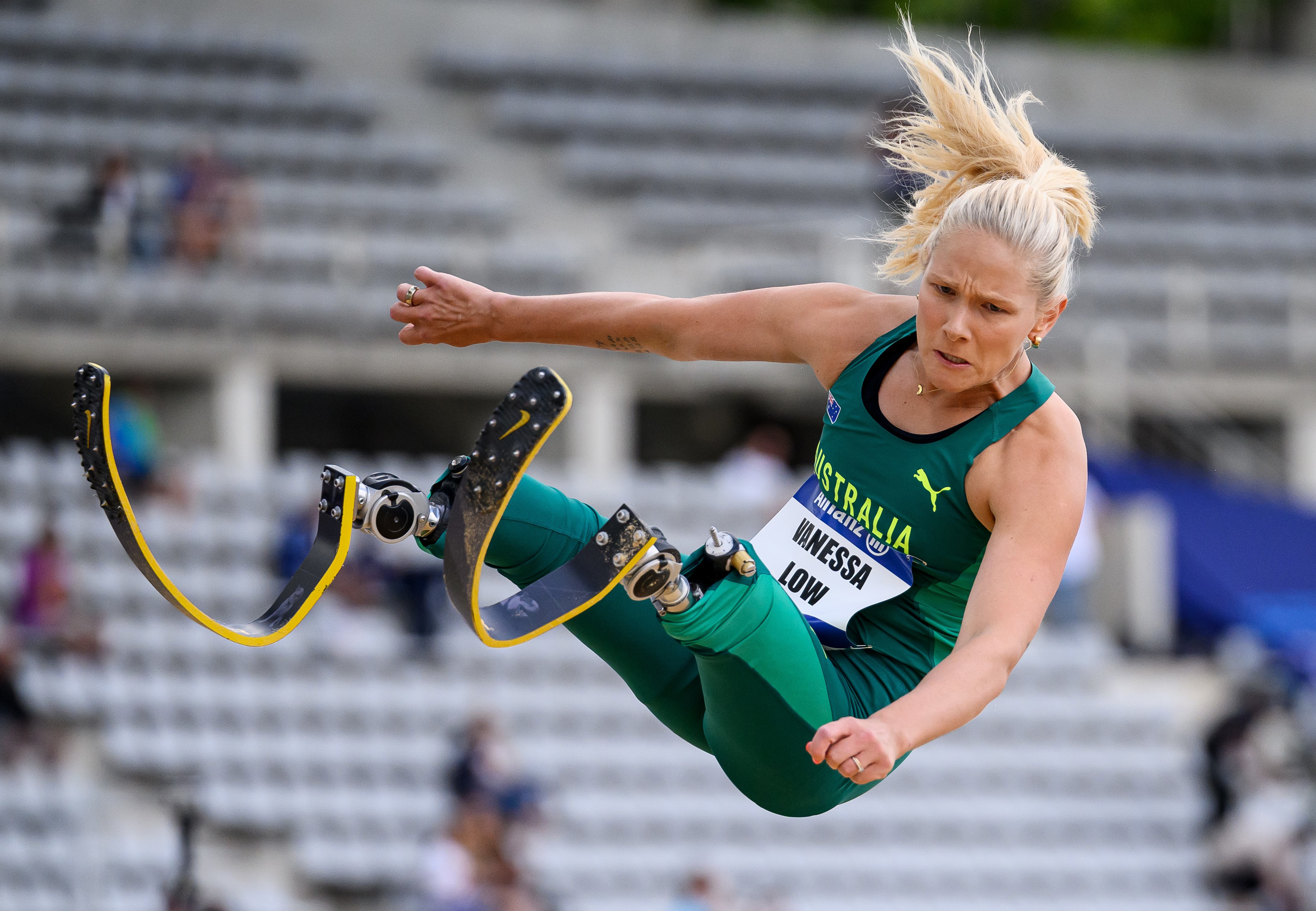PARIS: Australian Paralympic champion Vanessa Low has warned athletes who are wrongly classified could win gold in Paris as the event's bosses confront a problem that in her view is more important than the anti-doping system.
The Paris Paralympics, beginning with the opening ceremony on the Champs-Elysées on Thursday morning (AEST), would not be possible without a classification system that groups athletes depending on the type and severity of their impairment.
And while classification is undoubtedly a positive because of the incredible opportunity it provides athletes with a disability to compete and inspire on the world stage, its complex nature has for many years generated debate around just how fairly competitors are categorised.
READ MORE: 'Incredible' Kokkinakis stuns Tsitsipas in biggest victory
READ MORE: Aussie considers retirement after wild US Open meltdown
READ MORE: 'Brutal' decision as F1 team fires driver mid-season
The credibility of the Paralympics has been marred in past years by allegations of athletes exaggerating, or even lying, about symptoms, as well as a culture of athletes and their coaches deliberately approaching classification in a fashion that's not conducive to high performance.
In January next year, the International Paralympic Committee (IPC) will introduce a new classification code for the first time since 2015.
"The new code promises better classification for athletes and a continued growth in the confidence and integrity of classification and para-sport competition," the IPC said in May this year.
Low, the German-born Australian long jumper who's won two Paralympic gold medals, did not baulk when asked if it was feasible that athletes in Paris could win medals, and possibly even gold, in classifications in which they should not be competing.
"I mean, we always run that risk and I think this has happened in the past," Low told Wide World of Sports.
"The reality is classification is still a fairly subjective matter in some classifications where it's very difficult to put measures on, especially when you look at the cerebral palsy classes where you can't exactly see how the impairment affects the athlete.
"At the moment with how the system is it can be open to those opportunities of finding little loopholes and exaggerating some of the impairments that athletes have, and I really hope the classification code update means those windows get a lot smaller and that those athletes doing the right thing are protected from wrongdoings."

In August 2016, less than a month out from the beginning of the Rio Paralympics, the IPC dismissed 80 alleged cases of "intentional misrepresentation", declaring after a 12-month investigation there was "insufficient evidence to take any cases forward".
Some of the athletes involved in that investigation will be competing at the Paris Games, including Australians.
After the IPC announced its ruling in 2016, Xavier Gonzalez, who led the IPC as chief executive from 2004-2019, told the ABC's Four Corners that an independent body must be given the responsibility of policing classification. The IPC remains in charge eight years on.
"It's probably as important, if not more than the anti-doping system because the Paralympics are laid on the foundation of classification," Low said.
"If we didn't have classification we would have one competition and it would not be fair at all. We all have different impairments and they affect us differently and, therefore, we need classifications.
"If we get that wrong and we don't have the same group of athletes that can be compared in a fair way, then the sport is not worth watching, because we don't see equal opportunity and we don't see equal performance."

Swimming great Ellie Cole, Australia's most decorated female Paralympian, spoke candidly about the classification system in an interview with WWOS.
"It was really difficult when I was an athlete because you would be racing and you may think that someone you're racing against might not be in the right category," Cole said.
"But at the same time, most of the athletes don't have any medical degrees and they don't really know what's going on behind the scenes with someone else's disability, so you're really only seeing what's in front of you and making a judgement or an assumption on what's in front of you.
"I think for them [the IPC] to be doing it again [renewing the classification code] just shows how much scrutiny the classification system is currently under, particularly as the Paralympic movement has more exposure. I think it's a really important step to make for fair and equal sportsmanship, and I'm hoping they make some really positive changes."
Watch every moment, every medal of the Paralympic Games Paris 2024 live and free on Channel 9, 9Gem and 9Now. Plus, every event streaming ad free, live and on demand with 4K on Stan Sport.

Australian swimming champion Blake Cochrane, a winner of two Paralympic gold medals, made an intriguing observation in an interview with WWOS.
"It's a really, really tricky one because we celebrate difference and we celebrate those athletes that we consider to be incredibly unique at the Olympic Games, so you have Michael Phelps who is extremely flexible … we have gymnasts that are shorter and we have high jumpers that are taller, and we have all these people that are built to perform really well, but then we also have these athletes that don't quite fit the mould, but are incredible, and we celebrate that," Cochrane said.
"At the Paralympic Games it's difficult because we have classification that hones them into a particular range, and we can have an athlete that is incredibly talented at what they do, but they are almost punished because of their natural talent."
Help Australia's para-athletes get to Paris! Click here to donate.

Leave a Reply
You must be logged in to post a comment.